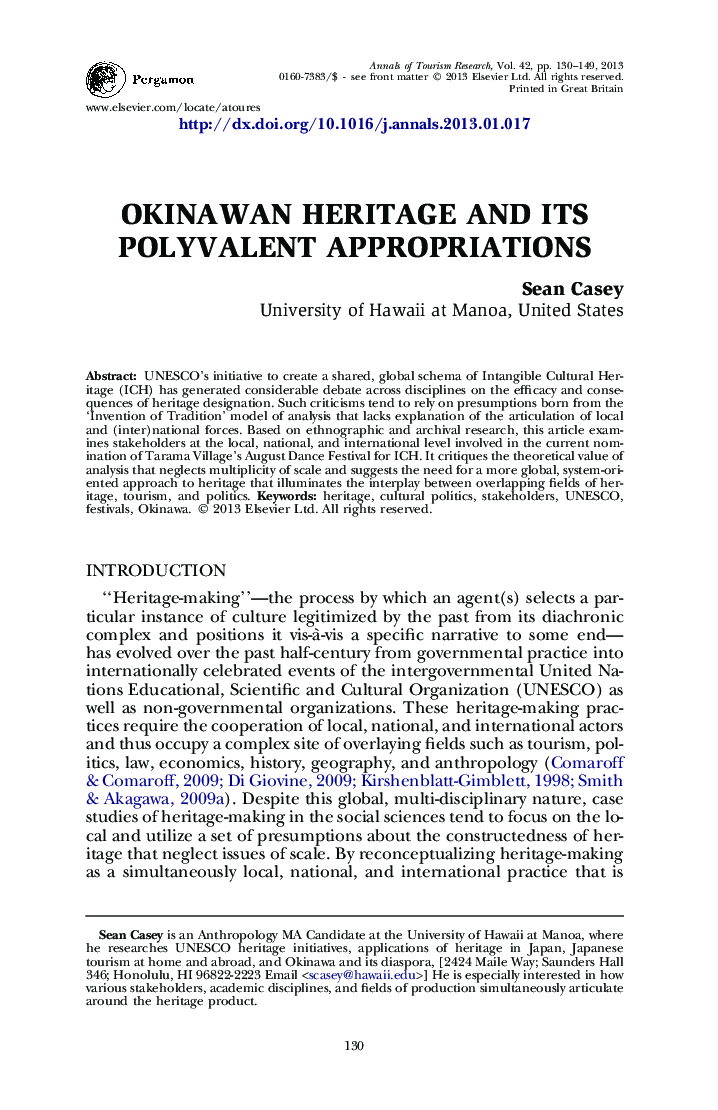| Article ID | Journal | Published Year | Pages | File Type |
|---|---|---|---|---|
| 1007300 | Annals of Tourism Research | 2013 | 20 Pages |
UNESCO’s initiative to create a shared, global schema of Intangible Cultural Heritage (ICH) has generated considerable debate across disciplines on the efficacy and consequences of heritage designation. Such criticisms tend to rely on presumptions born from the ‘Invention of Tradition’ model of analysis that lacks explanation of the articulation of local and (inter)national forces. Based on ethnographic and archival research, this article examines stakeholders at the local, national, and international level involved in the current nomination of Tarama Village’s August Dance Festival for ICH. It critiques the theoretical value of analysis that neglects multiplicity of scale and suggests the need for a more global, system-oriented approach to heritage that illuminates the interplay between overlapping fields of heritage, tourism, and politics.
► Process and stakeholders should be central to case studies of heritage-making. ► Issues of scale must be accounted for in heritage and its making. ► The concept of “polyvalent appropriability” best describes heritage selection. ► Festivals with “visuality” are high in “polyvalent appropriability”.
